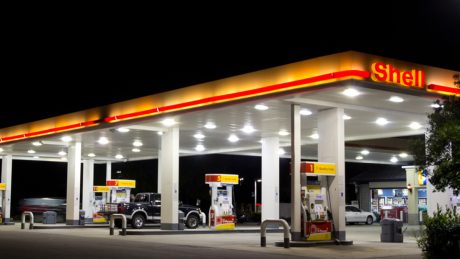Shell shareholder ClientEarth has announced it intends to bring a claim against Shell’s directors for failing to manage climate risk or properly prepare the company for the transition to net zero in line with the Paris Agreement. Matt Caples, Francesca Berry and Elaina Bailes consider this novel application of company law in the increasing sphere of climate change-based litigation.
The attention given to environmental, social and governance (“ESG”) issues and the appetite for related litigation is undoubtedly increasing. Shareholders and climate activists alike are considering with their lawyers how claims might be made against companies whose climate change strategies fall short.
Shareholder claims against PLCs are generally made with a view to seeking damages for loss of value of shareholdings. To date, such claims have largely focused on misleading financial reporting. However, with greater investor awareness of ESG issues and the environmental reporting obligations on companies increasing, it is only a matter of time before shareholder claims are brought on the basis of a company’s misleading ESG reports. Alternatively, as in the ClientEarth case, shareholders might disagree with a company’s actions or proposed actions. They may then use litigation to put pressure on the board to change its ESG policies on the basis that they are likely to cause loss to the company and, therefore, its shareholders.
Basis of the claim
In what would appear to be a first of its kind, ClientEarth, a non-governmental organisation (“NGO”) and shareholder in Royal Dutch Shell PLC, has announced a prospective derivative claim against Shell’s board members for alleged breaches of their directors’ duties. ClientEarth claims Shell’s directors have failed to act in a way that promotes the company’s success and have not exercised reasonable care, skill and diligence as required under sections 172 and 174 of the Companies Act 2006.
Section 172 of the Act imposes a general duty on a director to “…act in the way he considers, in good faith, would be most likely to promote the success of the company for the benefit of its members as a whole.”
And section 172(1)(d) requires a director in discharging its duties to have specific regard to “…the impact of the company’s operations on the community and the environment.”
ClientEarth claim that Shell’s directors have failed to meet this duty insofar as the company’s strategies are allegedly inconsistent with the 1.5°C temperature goal of the Paris Agreement and do not meet Shell’s own net zero emission ambitions. Such failings are said to be putting the company’s long-term value at risk. Specifically, ClientEarth alleges:
“Shell’s physical assets are heavily exposed to extreme weather events and the wider economic impacts of climate breakdown.
“As the net-zero transition progresses, bringing regulatory, market and societal shifts, Shell is facing potentially massive limitations on its operations, write-downs, while its assets are at serious threat of becoming stranded in future.”
ClientEarth says that by pursuing shareholder litigation, it is acting in Shell’s best interests to ensure that near-term profit does not come at the expense of long-term viability for its stakeholders, including its shareholders and employees.
Precedent in other jurisdictions
This action is not the first piece of climate change litigation threatened or brought against Shell. In May 2021, in the case of Milieudefensie et al v. Royal Dutch Shell Plc, the Hague District Court ordered that the company must reduce group-wide emissions (including those of suppliers and end-users) by 45% by the end of 2030.
One of the grounds for ClientEarth’s potential claim is the alleged failure of the board of Shell to respond adequately to the Dutch court’s ruling. Shell has subsequently appealed the judgment, claiming its target to achieve net zero by 2050 is in line with society’s progress towards achieving the Paris Agreement goal.
ClientEarth’s claim against Shell is currently at a pre-action stage. As a derivative action brought on behalf of the company against the directors personally under section 260 of the Companies Act 2006, the court will need to give permission for the claim to be brought. Assuming this initial hurdle can be overcome and the claim proceeds, Shell will be one of the first companies to have its ESG credentials tested in the English courts.
Wider significance of the case
The case is also the first example in England and Wales of an activist shareholder applying established general principles of company law to the ESG arena. If the case proceeds, it could spark a trend for similar actions. If the claim is successful, the court could force Shell to revise its net zero transition strategy and may find that its directors have acted in breach of their statutory duties. Such a finding could, in turn, give rise to potential “green-washing” claims being brought by Shell’s shareholders under section 90 or 90A of the Financial Services and Markets Act 2000. Such claims would be for loss in share value suffered due to misleading statements being made in relation to the company’s climate change strategy.
Any judgment will be highly relevant to other companies, both within the energy sector and beyond. This is particularly so given the increase in environmental reporting obligations, with mandatory climate-related disclosures set to apply to most UK-registered companies by the end of 2023. Company directors need to be aware that any inconsistency between a company’s public position in respect to ESG issues and its internal policies could result in liability for making misleading disclosures.
This could give rise to regulatory investigations, related derivative actions brought by shareholders and investor protection claims. Companies will also have to give careful thought to how they defend such claims, as they will want to tread a careful line in defending their ESG strategies without being seen as hostile to climate-conscious investors. Whatever the outcome of ClientEarth’s claim, climate-change litigation is set to increase further. The trend for such claims being brought directly against companies and their directors is only just beginning.
Stewarts Litigate
Stewarts Litigate is a groundbreaking after the event (ATE) insurance facility with Arthur J Gallagher UK Limited. The facility is designed to work alongside Stewarts’ alternative funding agreements to enable our commercial disputes clients to litigate from a position of confidence.
You can find further information regarding our expertise, experience and team on our Commercial Litigation page.
If you require assistance from our team, please contact us or alternatively request a call back from one of our lawyers by submitting this form.
Subscribe – In order to receive our news straight to your inbox, subscribe here. Our newsletters are sent no more than once a month.






